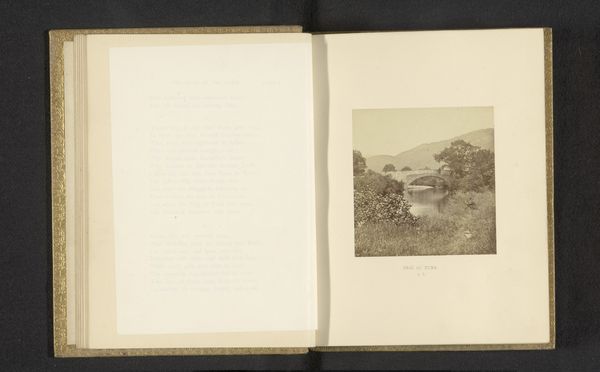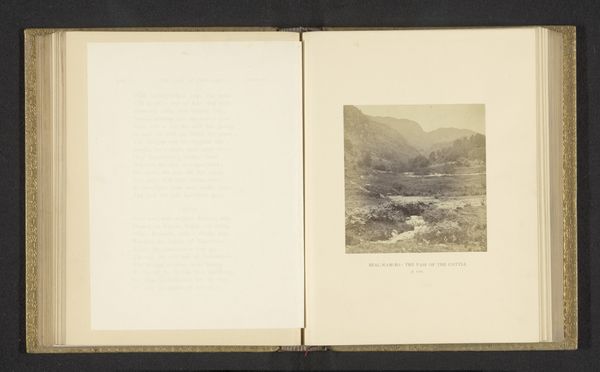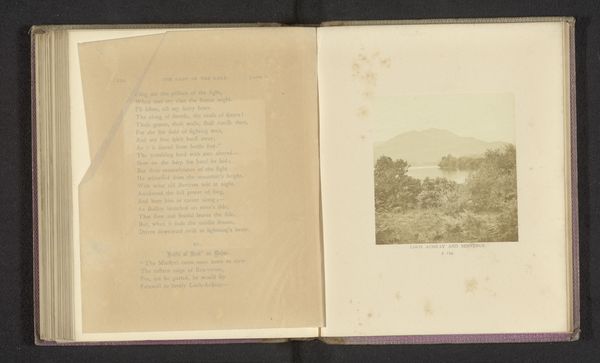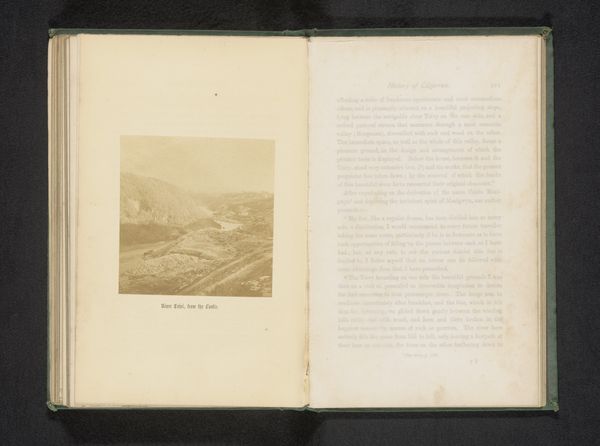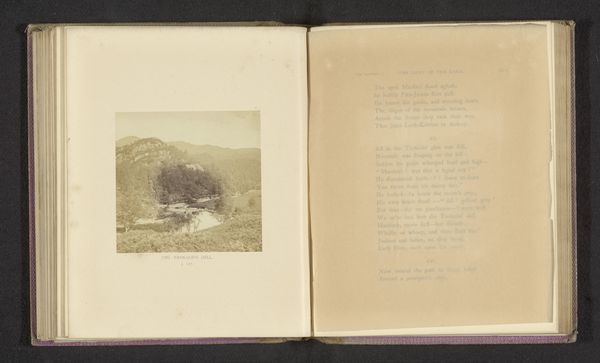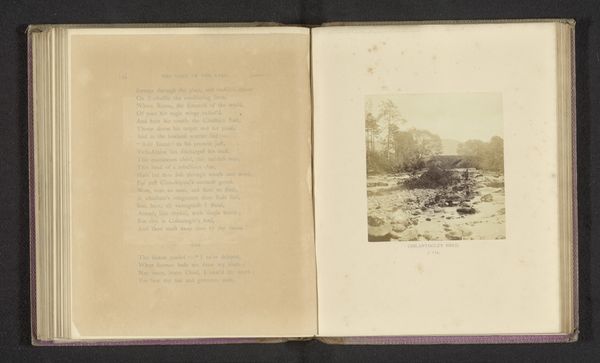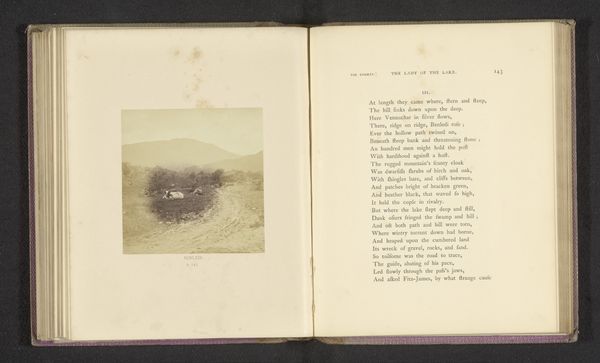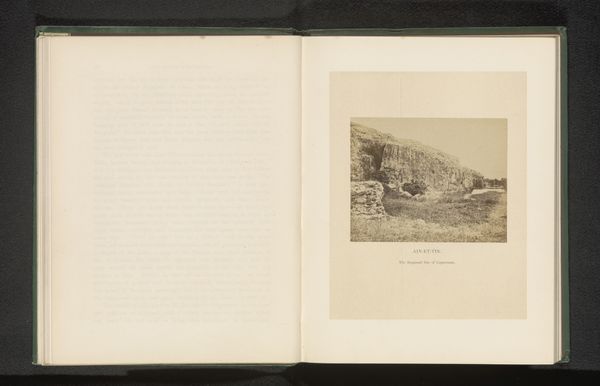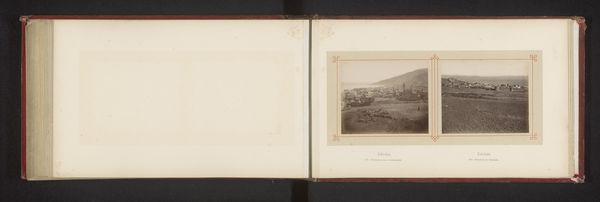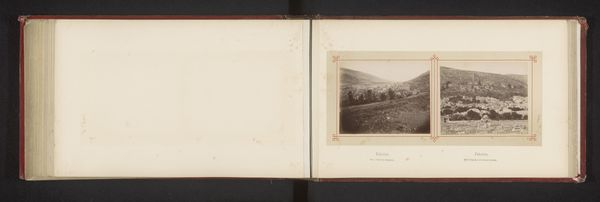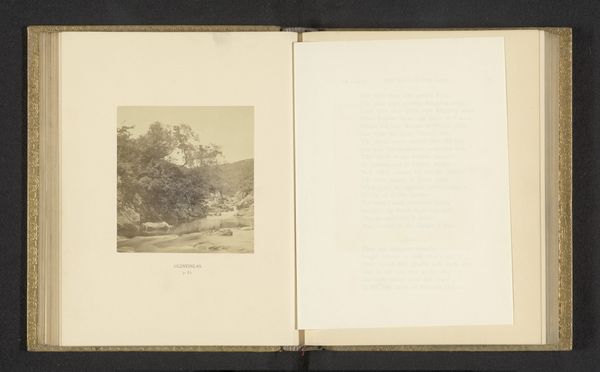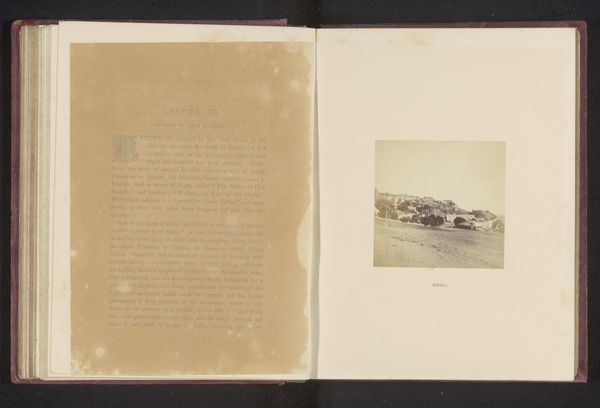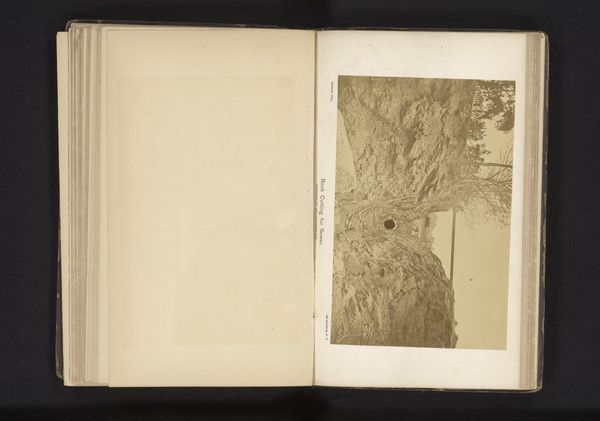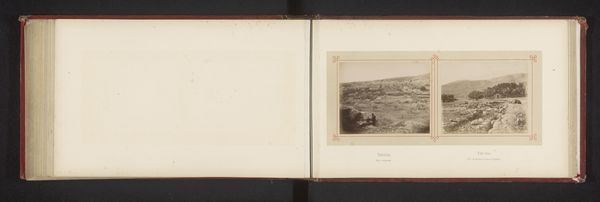
Dimensions: height 92 mm, width 88 mm
Copyright: Rijks Museum: Open Domain
Curator: This is a fascinating landscape captured by Thomas Ogle, likely before 1865. It’s titled “Gezicht op Ben Venue en Loch Achray.” What are your first impressions? Editor: Immediately, I'm drawn to the stillness. There's a profound sense of serenity in this albumen print. The muted tones add to the quiet grandeur. It’s as if time itself is holding its breath. Curator: It speaks volumes, doesn’t it? Consider the romanticism style; it reflects a period obsessed with nature's sublime power, yet we must recognize the specific socio-political lens. What are we meant to think about who might or might not have access to that sublime? It becomes more nuanced when factoring in race, class, and gender. Editor: That's a compelling point. Looking at the symbolic elements, water is a prevalent signifier, a visual code of the unconscious and spiritual transition. The mountain behind—its apex hidden by soft mist— speaks to journeys of transcendence, literally higher consciousness, but also culturally understood aspirations. Curator: And the absence of people is powerful. It might reinforce the romanticized notion of the solitary figure communing with nature, echoing the male gaze prevalent during this period, positioning the white male subject at the centre of the landscape and aesthetic experience. How does that skew the relationship of the image towards a broader public discourse? Editor: Perhaps by further investigating the framing of this picture, with a more contemporary lens, we see that the untouched scene almost emphasizes a lost connection with the environment. How have our societal stories created an imagined reality of a lost paradise? Curator: That's incisive. Ogle’s image isn't just a beautiful scene, it's a historical artifact carrying encoded ideas. Editor: A mirror reflecting our shifting interpretations of nature and the past. Seeing this has reshaped how I frame nature; it is now through the eyes of our complicated human-nature story. Curator: Absolutely, recognizing this complexity pushes beyond the picturesque and into essential reflection.
Comments
No comments
Be the first to comment and join the conversation on the ultimate creative platform.
